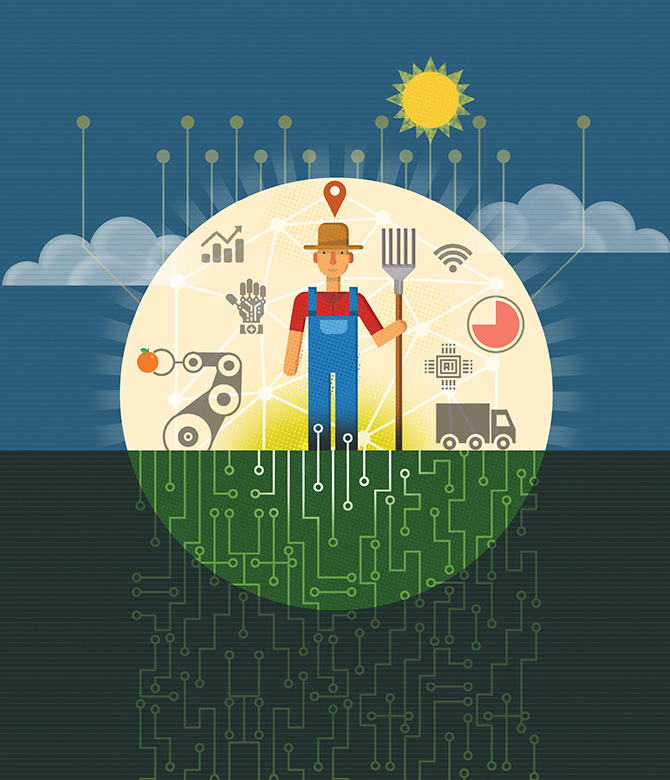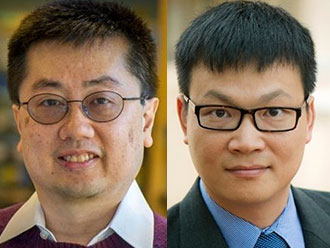Electrical engineering Professor Sungyong Jung is teaming up with UT Dallas Professor JB Lee on a U.S. Department of Agriculture project to develop a sensing system that can be used on farms to detect greenhouse gas emissions, a major factor in climate change.
“Farm fields emit carbon dioxide, methane, and nitrous oxide from fertilizers, cultivation of soils, animal waste, and rotting crops,” Dr. Jung says. “If we are successful, farmers will be able to accurately monitor gas emissions and reduce the factors that lead to them, allowing them to save money while increasing their productivity.”
To measure greenhouse gas emissions, farmers must place hundreds of sensors in their fields, making data collection difficult, time-consuming, and expensive. To mitigate that, Dr. Lee is developing a nanosensor that detects carbon dioxide, methane, ammonia, and nitrous oxide, while Jung is creating an embedded readout system with long-range transmission so information can be sent to a centralized data center. There, an individual can view results without having to go out and check multiple sensors in the field.



